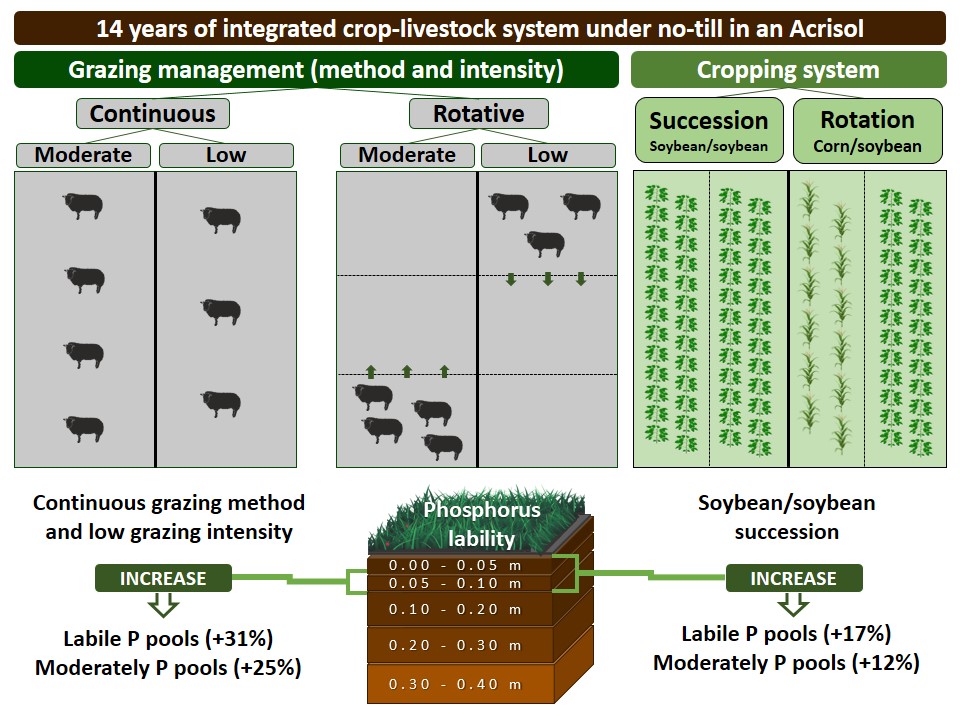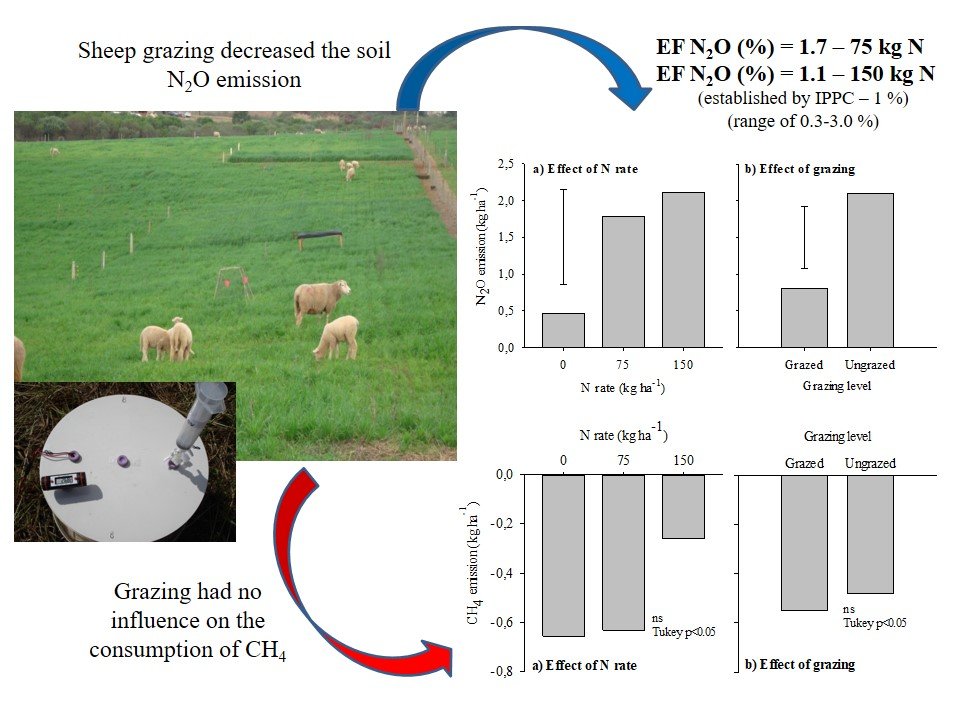Phosphorus lability in a subtropical Acrisol under long-term integrated crop-livestock system: impacts of grazing management and cropping system
28/Oct/2022
ABSTRACT Studies on lability of soil phosphorus (P) under integrated crop-livestock systems (ICLS) are still scarce, especially for deep soil layers (more than 0.20 m depth) and different managements in the crop and livestock phase. Distinct management in these phases may lead to a different distribution of soil P pools according to its lability (labile, moderately labile, less labile and residual) and, consequently, the P availability for plant nutrition. This study aimed to determine the soil P pools, by P […]
Emissions of Nitrous Oxide and Methane in a Subtropical Ferralsol Subjected to Nitrogen Fertilization and Sheep Grazing in Integrated Crop-Livestock System
14/Jun/2019
ABSTRACT Brazilian agriculture contributes significantly to nitrous oxide (N2O) and methane (CH4) emissions, so the understanding of such emissions at the field is crucial for mitigation strategies. This study quantified the impact of N application and sheep grazing on the N2O and CH4 emissions from a subtropical Ferralsol under an integrated crop-livestock (ICL) management system. In a long-term experiment in southern Brazil, gaseous fluxes were measured during a year-long cycle of ryegrass (Lolium multiflorum) plus oats (Avena sativa) winter pasture […]
Use of Organic Compost Containing Waste from Small Ruminants in Corn Production
05/Oct/2016
ABSTRACT Composting is a useful way of transforming livestock waste into organic fertilizer, which is proven to increase soil nutrient levels, and thus crop yield. Remains from production and slaughter of small ruminants can become a source of important elements for plant growth, such as N, after microorganism-driven decomposition.The aim of this investigation was to evaluate the effects of this compost on soil fertility and on the nutritional status and yield of the corn crop. The experiment was conducted in […]
Decomposition of manures applied at different depths in a degraded semi-arid area of the State of Paraíba
01/Feb/2005
This study aimed to evaluate the speed of manure decomposition at different depths. Donkey, cow, goat, and sheep manure was used after stove drying at ± 65 °C. 20 g of each manure was wrapped in nylon bags and applied superficially or buried at 10.0 cm depth. Monthly, a nylon bag/plot was collected. The material was cleaned to evaluate decomposition, oven-dried and weighed to determine the loss percentage in relation to the initial weight. Decomposition was slow in the first thirty days when ± 95 % […]


